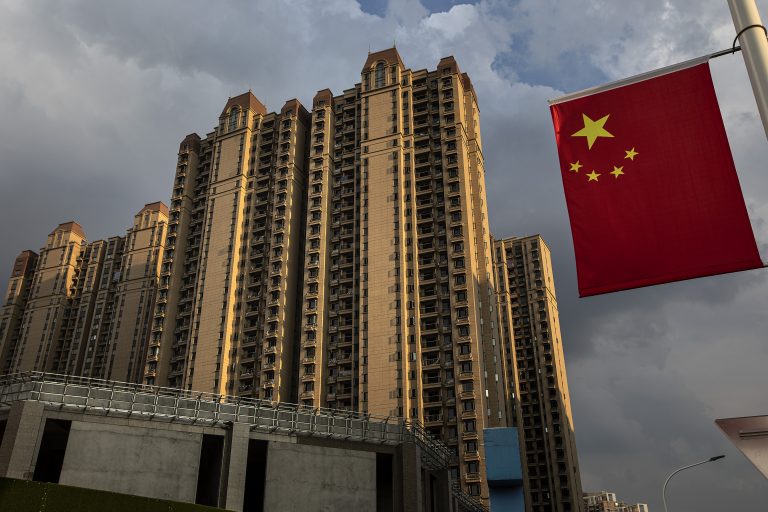With more than $300 billion in outstanding debt, the Chinese real estate giant is by no means out of the woods
Shenzhen-based Chinese real estate company Evergrande narrowly avoided a default on Oct. 21, making a payment on its offshore bond for 83.5 million U.S. dollars.
The payment was made out to Citibank to cover Evergrande’s 8.25-percent $2.03 billion bond, which matures in March next year, as reported by China’s government-run China Securities Times and Reuters. The outlets cited unnamed sources.
Evergrande had previously missed the due coupon payment, but was given a 30-day grace period on Sept. 23. The company had missed a total of five interest payments in September and October.
The payment has eased pressure on the land developer somewhat, but Evergrande still has to contend with more than $300 billion in debt. Two coupon payments worth a collective $235 million are due on Sunday, Oct. 24.
Zhou Chuanyi, Singapore-based credit analyst with Lucror Analytics, told the South China Morning Post that Evergrande’s payment was a “huge boost” given that many in the financial community had expected the company would default and undergo restructuring.
Success
You are now signed up for our newsletter
Success
Check your email to complete sign up
“Investors’ confidence over Chinese companies, particular developers, have been gravely hit by what Fantasia and Modern Land did, and now we understand that at least some Chinese companies, like Evergrande, are still trying very hard and willing to pay, shrugging [aside] its liquidity issues,” Zhou said, referring to other real estate firms struggling amidst China’s property bubble.
Larry Ong, an analyst with SinoInsider, a New York-based political risk consultancy, said that the Chinese government may have had a hand in allowing Evergrande to weather the crisis, at least for now.
Ong noted “ample signs of economic deterioration and property market trouble,” including falling home prices, a phenomenon not seen in China since 2015, that would compel authorities in Beijing to avoid worsening an “already dire situation.”
“It’s likely that the CCP [Chinese Communist Party] was forced to carry out damage control,” Ong told Vision Times in an emailed statement.
But the aid would have been a last-minute measure, as Beijing cannot afford to signal to firms that the government will always have their back. According to Ong, Evergrande’s ability to make its repayment lines up with statements made by Zou Lan of the People’s Bank of China on Oct. 15 that the government would carry out “risk disposal and resolution work.”
“This is not a sign of future bailouts,” Ong said. The CCP “is chiefly interested in avoiding a hard landing for the property sector on the whole” so that it can buy time for Evergrande and other real estate firms to sort out their debt dilemmas.
















